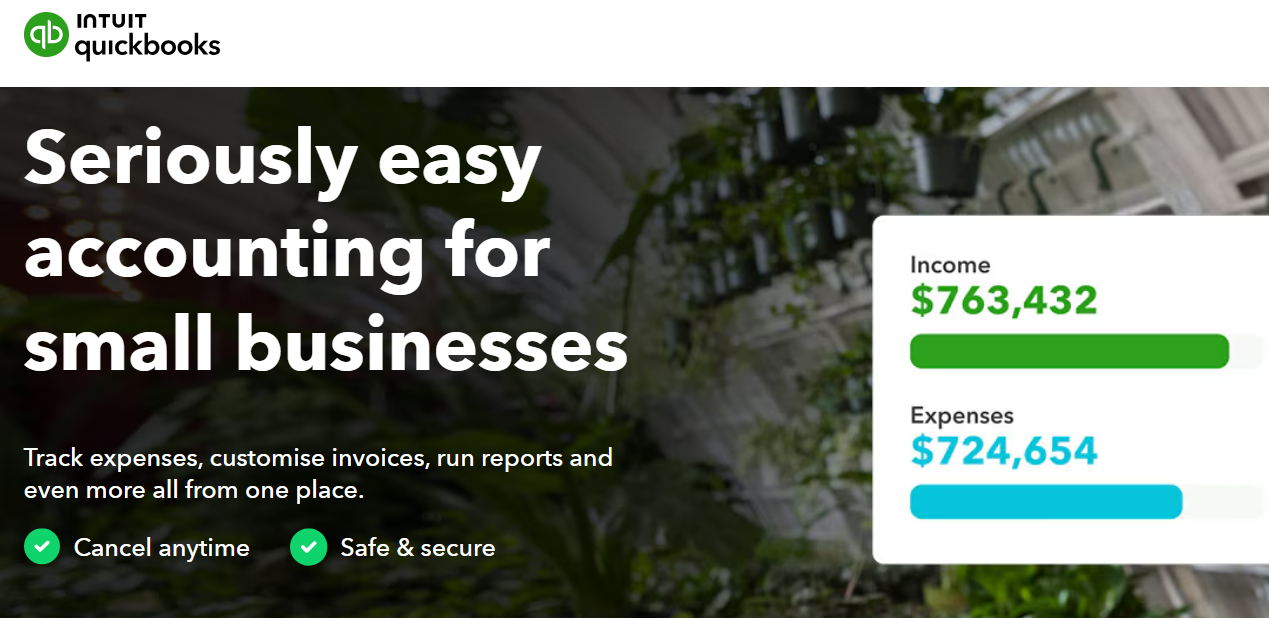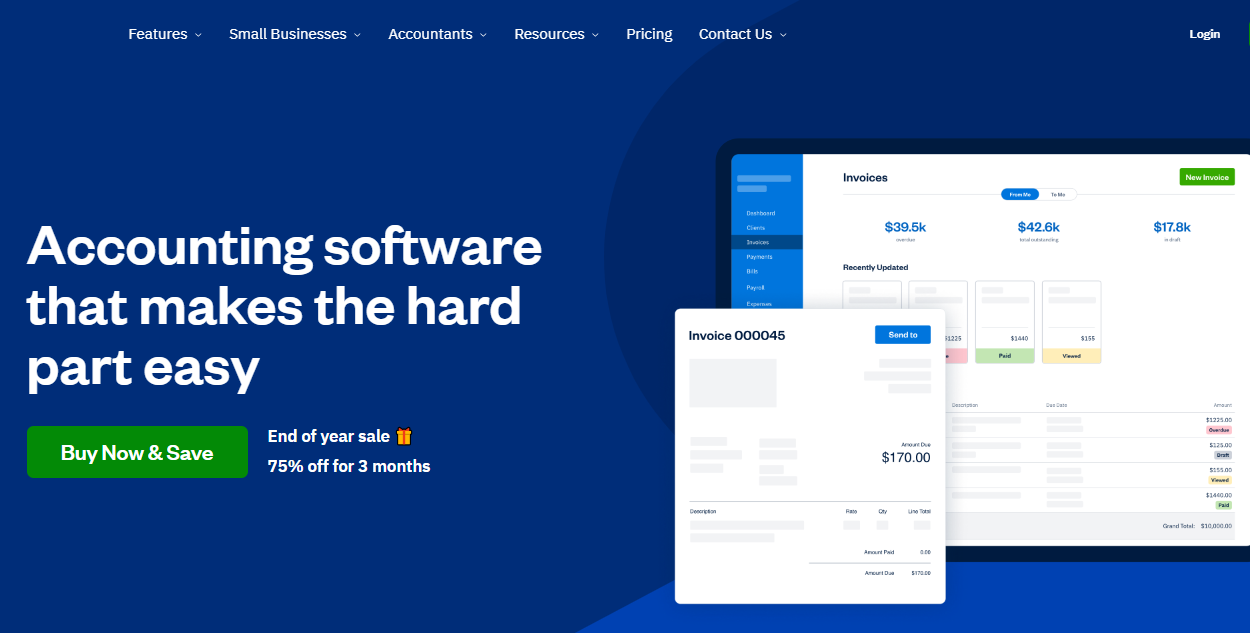Managing finances is essential for individuals and businesses. Financial management software makes this easier by automating budgeting, expense tracking, and reporting. This blog reviews the top 10 financial management tools of 2025, breaking down their features, benefits, and pricing.
Section 1: Why You Need Financial Management Software
Managing money can feel overwhelming. Financial management software helps simplify the process by organizing everything in one place. Whether you’re an individual tracking monthly expenses or a business managing payroll, these tools save time and improve accuracy.
Key Benefits of Financial Management Software
- Accurate Budgeting: Know exactly where your money goes.
- Save Time: Automate repetitive tasks like invoice generation.
- Better Decision-Making: Clear reports show your financial health.
Challenges
- Learning Curve: It can take time to understand complex features.
- Privacy Concerns: Some users worry about sharing financial data.
How It Helps Individuals and Businesses
- Individuals: Track spending, create savings plans, and avoid debt.
- Businesses: Manage payroll, invoices, and multi-entity accounts.
Section 2: Features to Look For in Financial Management Software
Before choosing a financial tool, consider these key features:
1. Expense Tracking
Track every dollar spent. This feature organizes expenses by categories, helping you identify areas for saving.
2. Budgeting Tools
Set monthly budgets for groceries, bills, or savings. Good tools send alerts when you overspend.
3. Custom Reports
Detailed reports show income, expenses, and financial growth. These help in making better financial decisions.
4. Cloud Integration
Cloud-based tools let you access data from anywhere. This ensures safety and easy updates.
5. User-Friendly Interface
Look for apps with simple dashboards. They save time and reduce confusion.
Section 3: Top 10 Financial Management Software of 2025
1. QuickBooks

- Why Choose It?
QuickBooks is great for small and medium-sized businesses. It handles invoicing, payroll, and expense tracking. - Features:
- Automated bookkeeping.
- Real-time expense tracking.
- Customizable invoices.
- Best For: Businesses needing expert assistance.
2. Quicken
- Why Choose It?
Quicken is perfect for managing personal and business finances together. - Features:
- Investment tracking.
- Real-time spending updates.
- Tax-related transaction tools.
- Best For: People managing personal budgets and investments.
3. NetSuite
- Why Choose It?
Ideal for businesses operating globally. NetSuite offers robust tools for financial and customer management. - Features:
- CRM and ERP integration.
- Real-time analytics.
- Inventory management.
- Best For: Companies with global operations.
4. Xero
- Why Choose It?
Xero is affordable and includes payroll integration. - Features:
- Multi-currency support.
- Expense and project tracking.
- Integration with Gusto payroll.
- Best For: Small businesses.
5. Sage Intacct
- Why Choose It?
Sage Intacct simplifies accounting for midsize businesses. - Features:
- Multi-entity management.
- Advanced reporting.
- Project accounting tools.
- Best For: Businesses handling multiple accounts.
Section 4: More Financial Management Software to Explore
6. FreshBooks

- Why Choose It?
FreshBooks is perfect for freelancers and small businesses needing invoicing and time tracking. - Features:
- Invoice creation with customizable templates.
- Time tracking for projects.
- Expense organization.
- Best For: Freelancers and small teams.
7. Zoho Books
- Why Choose It?
Zoho Books integrates seamlessly with the Zoho ecosystem, making it great for businesses already using their tools. - Features:
- Automation of recurring invoices and payments.
- Multi-currency handling.
- Tax compliance support.
- Best For: Businesses needing a comprehensive financial solution.
8. Wave
- Why Choose It?
Wave is free and perfect for startups or individuals managing simple finances. - Features:
- Free invoicing and accounting tools.
- Receipt scanning via a mobile app.
- Payroll add-ons for a small fee.
- Best For: Startups on a tight budget.
9. Personal Capital
- Why Choose It?
Personal Capital is a mix of financial management and wealth tracking tools. - Features:
- Investment performance analysis.
- Retirement planning tools.
- Cash flow management.
- Best For: Individuals looking to track investments.
10. HoneyBook
- Why Choose It?
HoneyBook is a favorite among creative professionals for managing client workflows. - Features:
- Project management and invoicing in one place.
- Custom contracts and templates.
- Payment processing.
- Best For: Freelancers and creative entrepreneurs.
Conclusion: Choose the Right Financial Tool for You
Financial management software is essential for staying on top of your finances. The right tool depends on your specific needs—whether you’re a freelancer, small business owner, or individual. Take your time to test free trials, compare features, and choose the one that aligns best with your goals.
Next Steps:
- Identify your top financial challenges.
- Test a few tools from this list to see which works best for you.
- Start managing your finances smarter and faster!
FAQs
1. Are these tools suitable for beginners?
Yes! Many tools, like Wave and FreshBooks, are designed to be user-friendly for people with little financial knowledge.
2. Is free software reliable?
Free tools like Wave are reliable for basic needs. However, advanced features often require paid plans.
3. Can I use multiple tools?
Yes, you can use different tools for specific purposes, such as one for budgeting and another for investments.
4. Do these tools support tax calculations?
Most software, like QuickBooks and Xero, offers tax-related features. Always check for country-specific compliance.
5. How secure is my financial data?
Top tools prioritize data security with encryption and multi-factor authentication. Always review a tool’s privacy policy before signing up.
6. Do these tools work offline?
Most financial tools are cloud-based and need an internet connection. Some, like Quicken, may offer limited offline functionality.
7. Can I switch tools later?
Yes, many tools let you export data, making it easier to transition if needed.

I am a passionate digital marketer with a strong expertise in SEO and article writing. With years of experience in crafting compelling content and optimizing it for search engines, I help businesses enhance their online visibility and drive organic traffic. Whether it’s creating engaging blog posts or implementing effective SEO strategies, I am dedicated to delivering results that make an impact.
